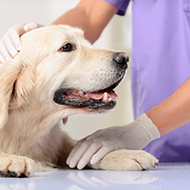
Concerns have been raised in 11 areas across Greater London.
The Competition and Markets Authority (CMA) Phase 1 investigation into VetPartners Limited’s acquisition of Goddard Holdco Limited - which trades as Goddard Veterinary Group - has raised competition concerns in 11 areas across Greater London.
In a statement, the CMA said 'the combined businesses would account for a significant proportion of veterinary services in each of these areas', adding that 'the combined businesses would not face sufficient competition after the merger'.
The investigation follows a recent inquiry into CVS’s purchase of The Vet, in which the CMA warned the deal could lead to pet owners ‘facing a worse quality of service’ or ‘having to pay higher prices’.
Colin Raftery, senior director of mergers at the CMA, said: “Close to 60 per cent of UK households own a pet and, when veterinary care is needed, the cost of care can have a significant impact on already-stretched household budgets.
“Like CVS’s recent acquisition of The Vet, VetPartners’ acquisition of Goddard would result in too many vets’ practices in the same area being under the control of a single company, raising the risk of higher prices or lower quality services.
“Unless our concerns are addressed, we will refer this deal for an in-depth investigation to ensure that pet owners don’t lose out.”
VetPartners, owned by the private equity firm BC Partners, operates approximately 550 sites across the UK, while Goddard, a family-owned business, operates 47 sites in Greater London.
VetPartners has five working days to submit legally binding proposals to the CMA in order to remedy the highlighted competition issues. The CMA will then have five working days to decide whether to accept these proposals, instead of forwarding the matter to Phase 2.
Further information about the investigation is available at gov.uk



 The latest
The latest